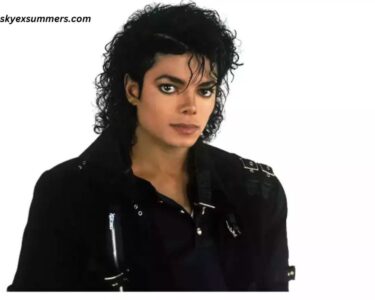Olivia Rodrigo burst onto the music scene in 2021 with her debut single “drivers license,” captivating audiences with her raw emotion and storytelling. Since then, she has carved out a significant place in pop music, resonating with a generation grappling with themes of love, heartbreak, and self-discovery. While the phrase “Prison for Life” may conjure images of literal incarceration, in the context of Rodrigo’s work, it serves as a metaphor for the emotional and psychological constraints individuals often face. This article explores the themes of confinement and liberation in Rodrigo’s music and the broader cultural implications of her artistry.
The Emergence of Olivia Rodrigo
Olivia Rodrigo, born in 2003, began her career as an actress in Disney productions, notably in “High School Musical: The Musical: The Series.” However, it was her musical debut that catapulted her to fame. Her ability to blend personal experiences with relatable themes has drawn a diverse audience. Songs like “deja vu” and “good 4 u” showcase her knack for capturing the complexities of teenage emotions, effectively placing her in the spotlight as a voice of her generation.
Themes of Confinement in Rodrigo’s Music
Rodrigo’s lyrics often explore feelings of entrapment, whether in relationships or within one’s own psyche. In “drivers license,” she expresses the pain of a breakup, emphasizing a sense of loss and longing that feels all-consuming. The lyrics reflect not just romantic heartache but also the struggle of moving on from a past that continues to haunt her.
Similarly, in “traitor,” Rodrigo grapples with betrayal, articulating a profound sense of being trapped by emotional pain. The song illustrates how one’s past relationships can create a mental prison, leading to feelings of insecurity and self-doubt. These themes resonate deeply with listeners, particularly young people navigating their own emotional landscapes.
The Cultural Context of Emotional Incarceration
The concept of emotional imprisonment is not unique to Rodrigo but reflects a broader cultural phenomenon. In today’s fast-paced, digital world, many individuals feel isolated despite being constantly connected. This dichotomy can lead to feelings of confinement in one’s own emotions. Rodrigo’s music speaks to this reality, offering solace to those who feel trapped in their circumstances.
In her album SOUR, Rodrigo channels these sentiments into a cohesive narrative, capturing the complexities of adolescence. The juxtaposition of youthful exuberance and profound sadness creates a poignant exploration of the human experience. Songs like “brutal” confront the pressures and expectations placed on young people, emphasizing the struggle for authenticity in a world that often demands conformity.
The Impact of Vulnerability
One of Rodrigo’s most significant contributions to contemporary music is her willingness to be vulnerable. In a landscape where polished images and manufactured personas often dominate, her honesty stands out. This vulnerability creates a connection with her audience, allowing them to see their own struggles reflected in her lyrics.
By embracing vulnerability, Rodrigo not only challenges societal norms but also encourages her listeners to confront their feelings. This is particularly important for young people who may feel isolated in their experiences. The emotional depth of her songs fosters a sense of community among listeners, transforming individual pain into shared understanding.
The Role of Storytelling in Rodrigo’s Artistry
Rodrigo’s storytelling ability is a defining feature of her music. Each song serves as a chapter in her narrative, inviting listeners into her world. In “happier,” she explores the juxtaposition of wanting the best for an ex while grappling with her own heartbreak. This nuanced storytelling elevates her music, transforming it from simple pop melodies into profound reflections on life and love.
The power of storytelling lies in its universality. Rodrigo’s experiences may be specific to her, but the emotions she conveys are relatable to many. This connection fosters empathy, allowing listeners to navigate their own feelings through the lens of her experiences. The stories told through her music serve as a reminder that while pain can feel isolating, it is also a shared human experience.
Breaking Free: Themes of Liberation
While much of Rodrigo’s music explores themes of confinement, it also offers messages of liberation. In songs like “good 4 u,” she channels anger and empowerment, transforming feelings of betrayal into strength. The juxtaposition of pain and power resonates with listeners who find solace in the catharsis of music.
Rodrigo’s ability to navigate the spectrum of emotions— from despair to empowerment— illustrates the complexity of the human experience. Her art encourages listeners to embrace their feelings, acknowledging that liberation often comes from confronting and processing pain rather than avoiding it.
The Influence of Social Media
In today’s digital age, social media plays a significant role in shaping artists’ narratives and connecting them with their audiences. Rodrigo has adeptly utilized platforms like TikTok to share her music, fostering a community of fans who resonate with her messages. This connection amplifies her impact, allowing her to reach a wider audience and create conversations around the themes she explores.
Social media also serves as a double-edged sword. While it provides a platform for connection, it can also contribute to feelings of inadequacy and isolation. Rodrigo’s candidness about her struggles with mental health and the pressures of fame resonates deeply with her audience, encouraging open dialogue about these issues.
The Future of Olivia Rodrigo
As Olivia Rodrigo continues to evolve as an artist, her music will likely explore new themes and complexities. The metaphorical “Prison for Life” may take on different forms in her future work, as she navigates the realities of adulthood, fame, and personal growth. Fans eagerly anticipate how her experiences will shape her artistry and the messages she chooses to convey.
Conclusion
Olivia Rodrigo’s music serves as a powerful exploration of emotional confinement and liberation. Through her storytelling and vulnerability, she has carved out a space for herself in the music industry, resonating with a generation grappling with complex emotions. The metaphorical “Prison for Life” reflects the struggles many face, while her art offers a pathway to understanding and healing.
As she continues to share her journey through music, Rodrigo will undoubtedly inspire countless individuals to confront their own emotional landscapes. In doing so, she transforms pain into empowerment, encouraging her listeners to break free from the confines of their emotions and embrace their authentic selves. Olivia Rodrigo is not just a musical sensation; she is a voice for those navigating the intricate dance of love, loss, and liberation.



